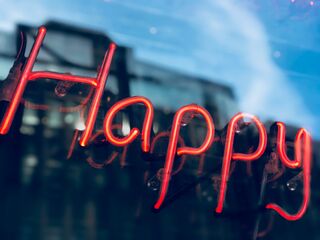Flow
Find Your Flow State
Why flow is key to happiness and contentment.
Posted November 8, 2021 Reviewed by Abigail Fagan
Key points
- People often try to address internal distress through external goals, such as finding a new job or relationship.
- Achieving a flow state—a state of complete absorption in an activity—can help people find happiness and contentment.
- To find a flow state, the activity must be challenging yet still match the person’s general skill level.

Many of us live in a state of perpetual discontent. We don’t have enough. Not the right job, not enough money, not the right car, not the right house. The list of desires is endless. We believe that if we only had X, then we’d be “happy.” Unfortunately, far more often the struggle to find happiness lies within. External desires are just a symptom of our internal maelstrom, a void that can never be filled with more money, cars, homes, possessions, vacations, or promotions. But we still try, because our hearts ache deeply so we struggle to fill the void.
In therapy, many clients struggle with this void and numb it with sex, food, alcohol, work, or materialism. In time, they acknowledge the void is too vast and is a black hole that can’t be filled with the physical. Instead, they come to see it as a spiritual problem. Spiritual in the sense that peace, serenity, contentment, and happiness are aspects of life that can be attained only by working on their inner world.
So how does one reach this level of happiness or contentment? Hungarian-American psychologist Mihaly Csikszentmihalyi spent his life’s work researching this topic. His conclusion was that the answer lay in one’s ability to find meaning through “flow.” In his book, Flow: The Psychology of Optimal Experience, Csíkszentmihályi outlines his theory that people are happiest when they are in a state of flow—a state of concentration or complete absorption in the activity at hand where people are so involved in an activity that nothing else seems to matter.
In an interview with Wired magazine, Csíkszentmihályi described flow as "being completely involved in an activity for its own sake. The ego falls away. Time flies. Every action, movement, and thought follows inevitably from the previous one, like playing jazz. Your whole being is involved, and you're using your skills to the utmost." He believed that to achieve this flow state, a person must find something that is both challenging and matches the skill level of the participant. My clients have found their flow states in various activities: reading, playing music, martial arts, prayer/meditation, artwork, photography, and swimming, just to name a few. What matters is not what the activity is but one where the entire self can get lost in it. When achieved clients report feeling fulfilled, curious, alive, and content.
So instead of trying to buy your way to happiness, consider areas of interest that give you a sense of flow, self-mastery, and relaxation. Once again, contentment and happiness are achieved through a state of mind but the challenge is finding something that is both challenging but rewarding enough for you to pursue because you intrinsically enjoy the activity.


